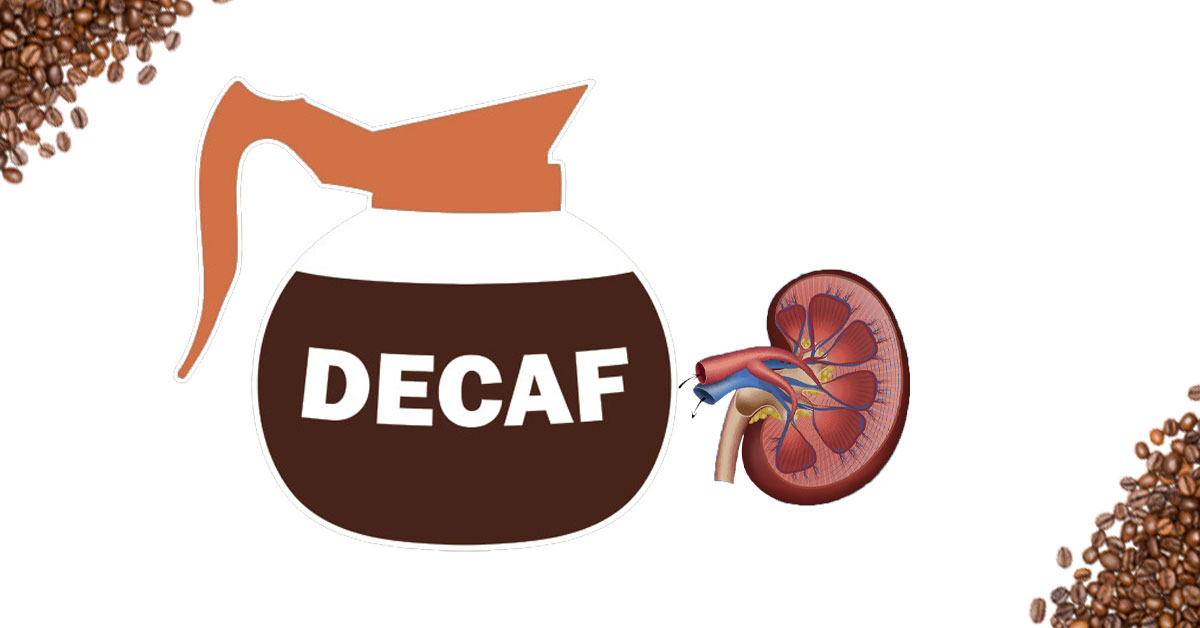Have you ever found yourself sipping on a cup of decaf and wondering: Is Decaf Coffee a Diuretic? or Am I going to be making frequent bathroom trips as I do with my regular brew?
Or maybe you’ve been intrigued by the buzz around the pour-over method and why it’s a favorite among your local baristas.
Well, friends, you’re in luck! We’re here to unravel these coffee mysteries for you.
Decaf Diuretic Myth
Let’s tackle the big question first – is decaf coffee a diuretic? The short answer? No. As per sources like Mayorga Coffee and Decadent Decaf, decaf coffee doesn’t increase urine production, which is the defining trait of a diuretic.
This is primarily because almost all the caffeine – the usual suspect behind the diuretic effect – is removed during the decaffeination process.
At the end of this section, you’ll have a better understanding of what decaffeinated coffee is and why it might be preferable to its closest rival.
You’ll also learn about some of the unique brewing methods that can help bring out the best flavor in your brew.
What Is Decaf Coffee?
Decaffeinated coffee, also known as “decaf,” is simply coffee that has had almost all of its caffeine content removed.
While some decaf coffees may still contain trace amounts of the stimulant – up to around 0.1-0.4% depending on regulations – it’s nowhere near enough to have any significant effect on your body.
So why choose decaffeinated coffee? Well, there are several reasons! Many people like to enjoy the flavor of coffee without the jittery side effects or late-night energy boost that come with caffeine.
Others may be looking for an alternative beverage to tea or hot chocolate in the evenings.
Decaf is also a great choice for those who want to enjoy multiple cups of coffee throughout the day without becoming overly caffeinated.
Decaf Coffee’s Diuretic Properties
Decaf coffee, despite its reduced caffeine content, retains some diuretic properties similar to regular coffee.
While the caffeine level is significantly lower in decaf, other compounds present in coffee, such as chlorogenic acids, might contribute to its mild diuretic effect.
Studies suggest that decaf coffee could still increase urine production, albeit to a lesser extent than its caffeinated counterpart.
However, individual responses may vary, and some people might experience a less pronounced diuretic effect with decaf.
These nuances helps in managing hydration levels, especially for those sensitive to coffee’s diuretic nature.
Brewing Methods for Decaf Coffee
Just like regular coffee, decaffeinated beans can be prepared in a variety of ways. The most popular brewing methods include the French press, pour-over, and espresso machines.
Each method has its own unique set of advantages and disadvantages that make it best suited for certain types of coffee.
For example, the French press is great for making strong, flavorful cups of decaf as it uses a coarse grind and allows the grounds to steep in hot water for several minutes before filtering.
On the other hand, pour-over brewing is ideal for lighter roasts as it only exposes the beans to hot water briefly, which helps preserve their delicate flavor.
Finally, espresso machines are great for producing intense shots of coffee in a fraction of the time.
Decaf vs. Caffeinated
So, let’s dive right in. Is decaf coffee a diuretic? No, According to various sources including Mayorga Coffee and Decadent Decaf, decaffeinated coffee does not increase urine production, which is what defines a substance as a diuretic.
This is largely due to the fact that caffeine, the compound in coffee that typically causes a diuretic effect, is almost entirely removed during the decaffeination process.
Now, you might be thinking, But doesn’t coffee make me pee more? Well, that’s where the caffeine comes in.
As Mayo Clinic explains, caffeine can increase urine production, making caffeinated drinks potentially diuretic. But decaf? It gets a free pass in this regard.
Pouring
Moving on to brewing methods, let’s talk about the pour-over. Why is it such a hot topic among coffee enthusiasts and baristas alike?
The pour-over method allows for optimal water distribution over the coffee grounds, resulting in a clean, full-bodied cup that truly honors the unique flavors of the beans.
Plus, it gives you control over the brewing process, from the water temperature to the pouring speed.
However, the pour-over method requires some patience and precision. You need the right equipment — a good pour-over cone, filters, and a gooseneck kettle for precise pouring.
And you need a bit of time, as the water should be poured slowly and evenly over the grounds. But once you’ve got the basics down, you can start to experiment with different grinds and pour speeds to bring out the best taste of your decaf coffee.
Caffeine-Free for Relaxation and Better Sleep
To decaffeinated coffee, the answer is a resounding no. Unlike its caffeinated cousin, which contains enough caffeine to give you an energy boost, decaf has had almost all of its stimulating properties removed during the decaffeination process.
This means that even if you indulge in multiple cups of decaf throughout the day, you won’t be feeling any of the jitters or restlessness that can accompany too much caffeine.
In fact, some studies have even suggested that drinking decaffeinated coffee may help promote better sleep. So if you’re looking for a hot beverage to help you relax and unwind before bed, decaf is the way to go.
There is very little chance that drinking a cup of decaf will keep you awake or interfere with your sleep.
In fact, according to one study, decaffeinated coffee may even have a slight calming effect thanks to its natural compounds.
So if you’re looking for a way to enjoy the flavor of coffee without sacrificing your precious shut-eye, decaf is definitely the way to go.
Benefits of Decaf and the Pour-Over Method
So, what happens when you combine decaf coffee with the pour-over method? You get a delicious, non-diuretic beverage that’s full of flavor and can be enjoyed anytime, without worrying about caffeine jitters or frequent bathroom breaks.
Decaf coffee, despite being devoid of most caffeine, still boasts antioxidants and may offer health benefits.
And when brewed using the pour-over technique, you get to experience these benefits along with a great-tasting cup of joe that’s been crafted with care and precision.
Decaf Coffee and Urination
The verdict is in decaf coffee does not promote urination, and it can be an excellent choice for those seeking the flavor of coffee without the effects of caffeine.
Plus, when prepared using the pour-over method, you get a rich cup of aromatic coffee that showcases all the wonderful flavors of your favorite beans.
So don’t be afraid to give decaf coffee and the pour-over method a try. You might just find that you’ve discovered your new favorite cup of joe.
This is a complex question that depends on a variety of factors. Generally speaking, decaf coffee does not make you urinate more than regular caffeinated coffee.
Since the majority of caffeine has been removed during the decaffeination process, there is no stimulant present to increase urine production.
Additionally, a study conducted in 2003 showed that decaffeinated coffee did not have a significant effect on urine production, even when consumed in large quantities.
Therefore, it can be concluded that decaf coffee does not make you urinate more than regular coffee. However, individual responses may vary depending on factors such as hydration levels and caffeine sensitivity.
Conclusion
In conclusion, if you’re a coffee lover who’s been avoiding decaf because of concerns about it being a diuretic, rest easy. Decaf coffee won’t have you running to the restroom any more than drinking water would.
If you’re curious about the pour-over method, why not give it a try? It might take a little practice, but the reward is a beautifully brewed, flavorful cup of coffee that highlights the unique characteristics of your chosen beans. So go ahead, pour over a cup of decaf, and savor the moment.

